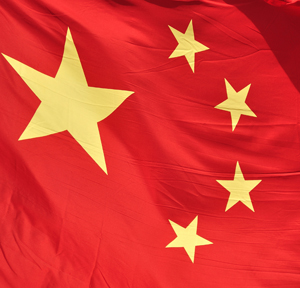Investment Strategies
EXCLUSIVE: China Is "Unique" Growth Force; Reforms Bode Well - Julius Baer Report

The growth gap between developed and emerging markets has narrowed but China remains a “unique source of growth” for the world, Julius Baer said in its second Greater China Quarterly report.
The growth gap between developed and emerging market economies in
regions such as Asia will narrow but China remains a “unique
source of growth” for the world economy, Julius Baer said in its
second Greater China Quarterly report on the region, published
exclusively by this news service today.
The growth differential between gross domestic product has been
narrowing between advanced and BRIC nations since the pre-crisis
year of 2007, and is now at all-time lows, the Swiss bank said in
a 28-page paper.
“While correlations between the financial assets of mature and
emerging markets have been elevated for some time, the notion
that the ‘selling argument’ for emerging markets (ie high growth)
is fading raises new questions. In particular, if a high growth
differential is no longer on offer, what is the intrinsic
motivation for an investor to consider the BRICs in their
investment decision-making process?” the paper asks.
Julius Baer says
that the answer to this question lies in how China’s policymakers
have recently embarked on moves to push the world’s second
largest economy towards being a more market-friendly economy,
removing certain forms of state interference.
“The scale of this challenge cannot be underestimated and the
time-frame promises to run in years, not months. But within the
next decade, we expect to see a China that has a floating, freely
convertible currency, significantly larger private sector,
higher-value added services and industries that in turn finance
much higher standards of living,” it said.
“In essence, this is how we have interpreted the outcome of the
3rd Plenary Session of the Communist Party and path that has been
laid out for the economy at large. This means investors will find
opportunities in Greater China, thanks to reforms unlocking
value,” it said.
The Zurich-listed bank, which now treats Asia as its second
domestic market, is one of a number of wealth managers trying to
work out how to adjust to a world where, for the first time in
several years, emerging markets have lost some of their momentum
relative to developed economies, such as the US. Longer term,
most such banks, such as explained by Societe Generale and UBS
recently, still expect the emerging market story to remain a
positive one, although they suggest investors will have to pick
their shots more finely.
Julius Baer said that with the US Federal Reserve recently
signalling a slowdown in quantitative easing to come, investors
should be wary of assets where there is a clear link to US
monetary conditions, such as Hong Kong real estate. (The Hong
Kong dollar is pegged to the US dollar, hence the transmission of
monetary policy from the Fed.)
“On the other hand, some themes in Greater China, such as Macau
gaming, have sufficiently strong stand-alone fundamentals, so we
continue to highlight this topic despite the initiation of
Federal Reserve tapering.
The Swiss bank said it takes a strong view, despite possible
pressures and volatility, that China’s currency policy towards
the yuan, or Renminbi, will remain in place; “a stable and gently
appreciating CNY is the most plausible outcome as complex reforms
are pressed ahead with. This makes pure currency investing in
China a lower risk option, relative to equities and fixed
income”, it said.
Taiwan and Hong Kong
The bank reckons that the recent “soft patch” for the Taiwan
economy is now probably past, and the country, which tends to be
more exposed to fluctuations in the world economy, is set to
recover, such as its key IT export sector.
As for Hong Kong, Julius Baer said that while the jurisdiction is
likely to be affected by tapering of US Fed quantitative easing,
such a downturn will be “limited and short-lived”, due to strong
underlying demand for Hong Kong property in the region.
“However, other property markets, namely those in China and
Japan, are likely to be better insulated from the actions of the
US Federal Reserve in the coming year,” the bank said.
As for exports, the bank said that trends in Hong Kong “seem to
mirror what is happening elsewhere in Asia and Taiwan: a re-bound
in Japanese demand is diversifying growth in Hong Kong’s exports
to China and the US”.
It argues that domestic demand conditions in Hong Kong remain
resilient. “Unemployment is low at the 3.3 per cent level,
inflation is near 4 per cent while the Purchasing Manager Indices
remain solidly above the key 50 threshold. In other words, the
back-drop for Hong Kong to weather the impacts of the sun-setting
of quantitative easing in the US is robust – notwithstanding the
likely increase in macroe-conomic volatility that will spill over
in due course,” it adds.